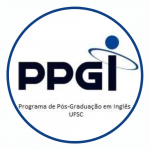Minicurso – Narrative Analysis / Corpus-Based Tools
O PPGI convida todos para participarem do Minicurso
NARRATIVE ANALYSIS/CORPUS-BASED TOOLS
Informamos a todos que as vagas são limitadas e que é necessário enviar um e-mail com nome completo, CPF e data de nascimento, solicitando participação para o endereço ppgi@contato.ufsc.br
Segue abaixo a programação do evento.
TIME: 9 – 12 a.m.
DATE: 18th TO 19th February (Thursday and Friday)
PLACE: LABORATÓRIO DE INFORMÁTICA 007 – CCE-A
Mini-Course Programme
Thursday 18th
9-10 a.m. – Mini-Course on Narrative Analysis/Corpus-based Tools
10-10.30 a.m. – Coffee Break
10.30-12 a.m. – Continuation of Mini-Course on Narrative Analysis/Corpus-based Tools
Friday 19th
9-10 a.m. – Mini-Course on Narrative Analysis/Corpus-based Tools
10-10.30 a.m. – Coffee Break
10.30-12 a.m. – Continuation of Mini-Course on Narrative Analysis/Corpus-based Tools
MICHAEL TOOLAN’S LECTURE
TITLE: NEWS MEDIA REPRESENTATION OF GROWING INEQUALITY IN THE UK: UNDERTAKING A CDA STUDY USING CORPUS LINGUISTIC METHODS
Monday 22nd
10-11.30 – Lecture for PGI/PGET students
AUDITÓRIO HENRIQUE FONTES – CCE-B
Abstract
My talk will report on my ongoing research on how the Daily Mail and the London Times have represented wealth inequality in the UK, across the forty years from 1971 to 2011. Over that period, inequality has grown significantly: is there evidence in the newspapers to suggest that what was reported, and how it was reported, shifted accordingly across the decades, and shifted not merely to report completed changes but also to foster changed attitudes? My speculation, in a CDA spirit, is that the Mail and the Times may have done some of the later, thereby ‘normalising’ current levels of inequality as reasonable, unavoidable, and necessary. The research challenge is then to present evidence of these shifts and naturalisings, and this in turn presents methodological difficulties. I will discuss these matters, and share some data and initial findings.








